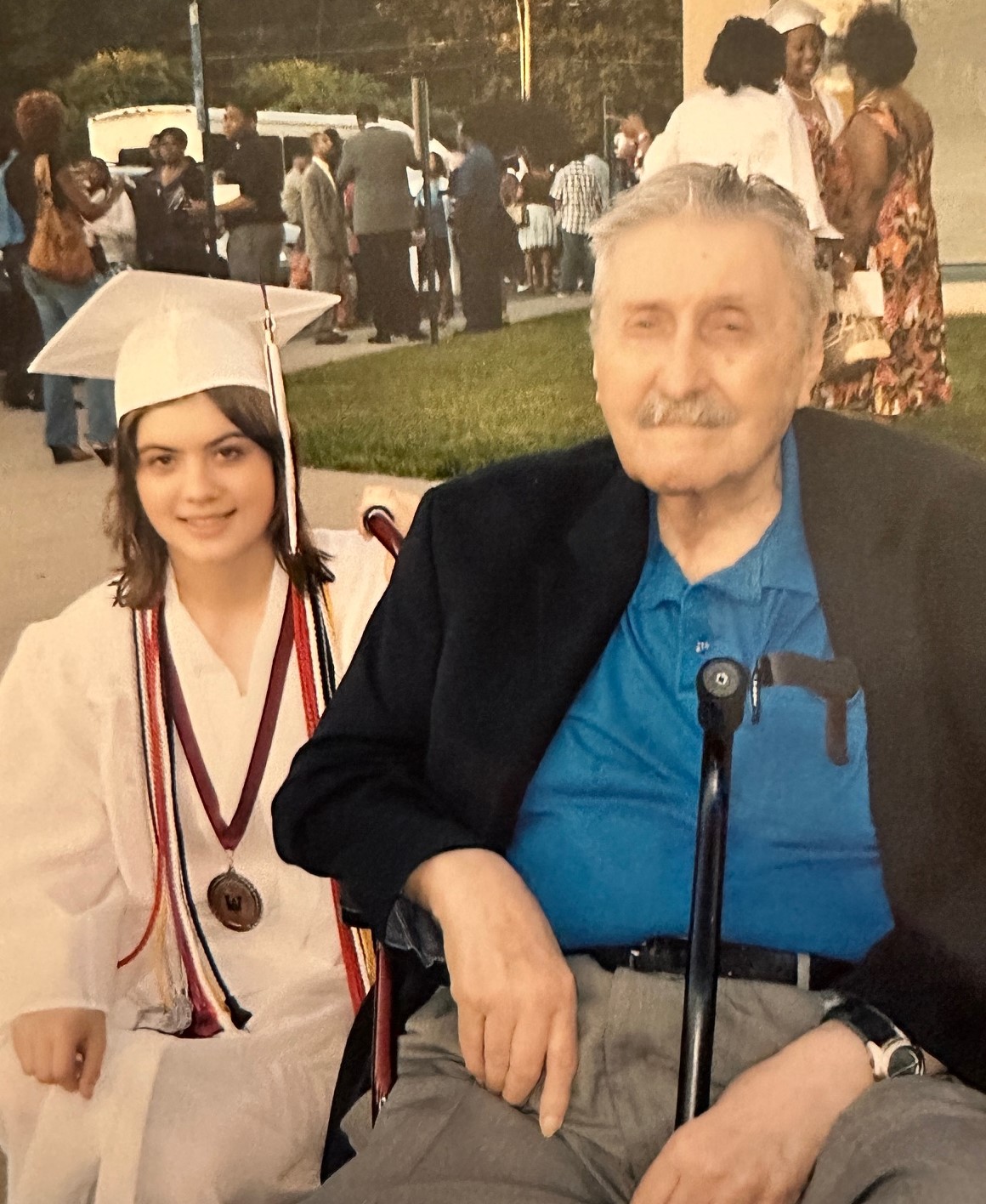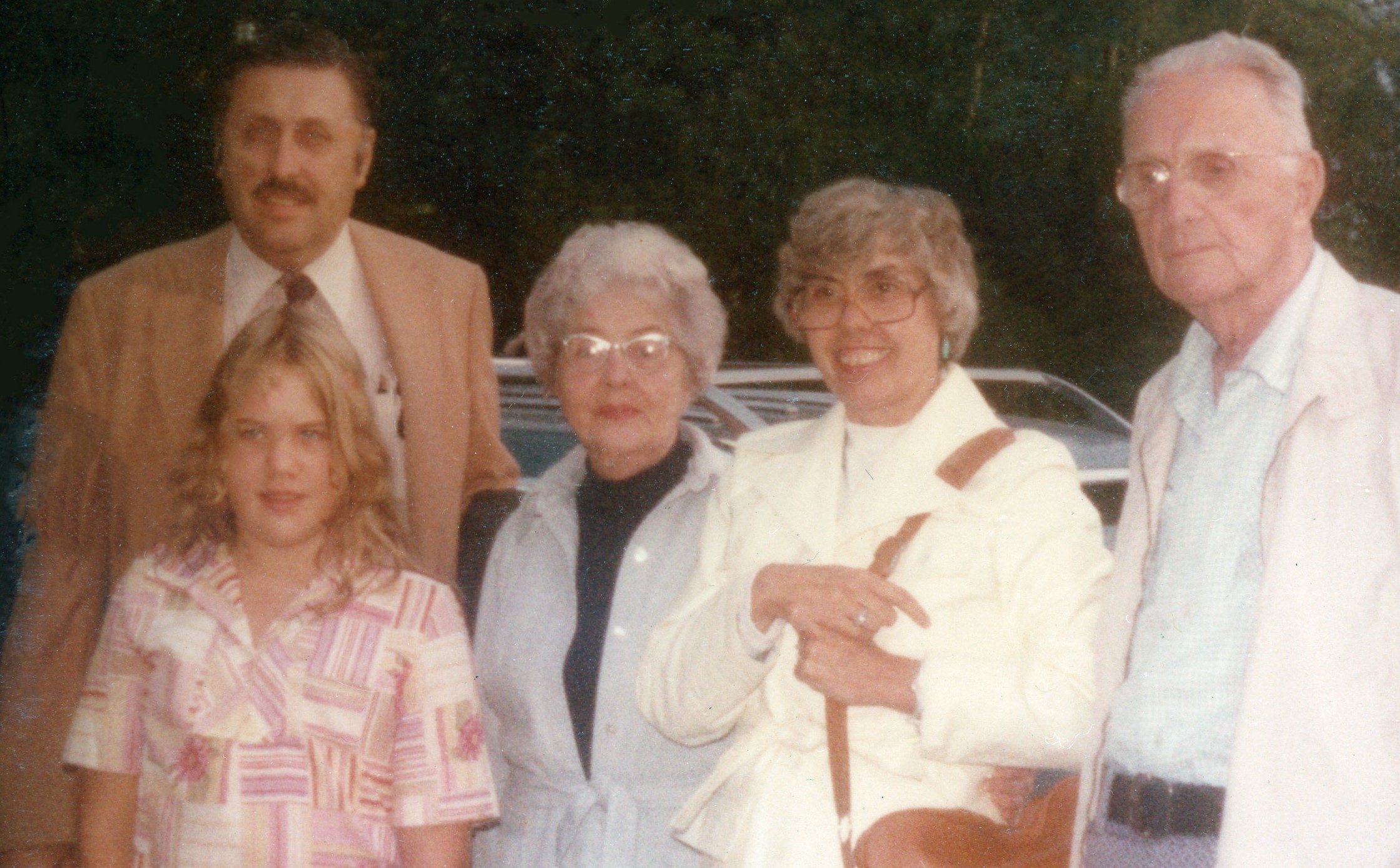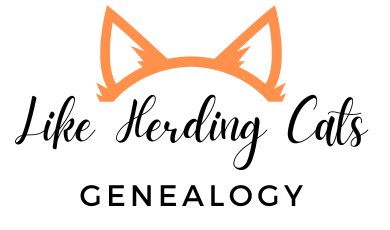Telling the Girls

I knew that eventually, I had to tell our girls about the secret I had discovered because it also affected them. This was their DNA, too. I had made the decision not to tell my siblings until after my mother had passed away, but I felt the longer I waited to tell the girls, it would be no different than my mother keeping it a secret from me all those years.
I decided to tell them at Easter. If you’re keeping up, it is now the Spring of 2017. Our “girls” were actually all grown women, ages 27, 26 and 23. Our two oldest lived out of state. They were in high school and college when Dad passed away, and they have special memories of him and funny stories about him. I wouldn’t call him a hands-on grandfather who got down on the floor and played with them. They knew that just wasn’t Grandad’s style. He was also a decade older than most of their friends’ grandfathers, so it was different. He would read to them, make crossword puzzles for them, and bond with them over a bunch of random things, like them all being in marching band in high school. Dad played clarinet like our oldest daughter did. Dad was just a sweet man, and it was impossible not to love him because of it.

After the traditional Easter breakfast at my in-law’s house, I told the girls I needed to talk with them about something when we got home. They were intrigued and curious. I learned later there were lots of text going around between the three of them trying to guess what I was going to say (all guess were wrong, of course)
We arrived home, and the girls immediately sat in the family room. This was the room of many family talks in the past.
I sat on the couch and waited a minute to collect my thoughts. My husband, Fred, was nearby in the kitchen, waiting for the tough part to be over. Deep talks were not his comfort zone.
“OK, so I wanted to wait until I had you all together before I told you something I discovered recently.” I began. “And since we all won’t be together again until Christmas, I guess today is the day to do it. ”
I looked at the girls, and they were absolutely fixated on me.
It was only the third time I had said this out loud since I found out, and my voice was shaky.
“I discovered that Grandad isn’t my biological father.” I let it sit there for a minute, lingering in the air. I looked at each of them for their reaction. All of their mouths dropped open, and their eyes were big. They were silent.
Our middle daughter, Katie, was the first to speak, “Well, that explains a lot!” she laughed nervously.
After that comment, Fred sensed it was safe to come back into the room and said, “I know, right??” Fred is good at easing the tension in a situation, and he spent a minute or two making light of how lucky I was not to look or act like my family. The girls knew he was just kidding around and trying to lighten the mood. They all laughed. I knew the worst was over.

I recounted the journey over the last two years to them. They had plenty of questions. The first question was whether I knew who my biological father was. I told them who he was and showed them *Joe’s photo. They didn’t react much either way, looking at it. They were still processing it all, I could tell. Our youngest, the most sensitive of the three, was quieter about it all. Her first question: “Did Grandad know?
I told her that Grandma Lee had said no, he didn’t know. I said I was giving my mother time to be more forthcoming when I talked to her again. The news rattled them, but they were more concerned about how I was handling it. They picked up right away the realization that I didn’t have any full siblings any longer. They knew I felt sad about that. They could sense the loss I felt. They loved my Dad and felt strange about it all, and I could see it dawning on them that they weren’t actually related to the ancestor photos we had everywhere in the house. It was a shift in thinking that I understood very well.
Questions would come in the coming days and months and even to this day, eight years later, as they processed it all and what it meant to them. They asked medical questions ( I didn’t know much). They asked if I was going to reach out to my bio half-siblings (a big NO at the time, I told them. ). They asked me to text the photo of Joe to them so they could study it more closely. They were insanely curious about what other bio family members looked like. They realized that the cousins they grew up with were biologically related to their grandfather, but they were not. It was surreal to them. But they handled it all so much better than I did.
I asked them not to share this with their cousins on either side yet because I knew the next people who should know were my brothers and sisters who I grew up with. I felt so relieved that the girls knew now, but I wasn’t ready to even think of telling my brother and sisters.
*pseudonym
This is my NPE story of discovering in 2015 that my Dad was not my biological Dad. If you’d like to follow along, I encourage you to start at my first post of the series HERE.

It’s difficult to reconcile that you’re not biologically related to people you thought you were your whole life. Well after my grandfather had passed away, I determined that he was not the biological son of the man who raised him. I know that my grandfather never knew that. I had strongly suspected it to be the case, but even so, when I proved it, it still threw me off. But that’s one of those things about genealogy: If you’re afraid to learn things like that, genealogy is probably not the right activity for you.
Yes, when we are thinking like genealogists, things like this are more intellectual, but when we step back into our ordinary person roles, we can’t help but look at it differently. You are right. Thanks for reading. 🙂
Your story is so touching and shows the importance of being sensitive to how this new info will affect so many family members. Looking forward to learning more about your relatives’ reactions. Sending hugs as usual.
Yes, that is one of the number one things people don’t realize…that it affects more than just the NPE themselves. Thanks for reading 🙂
DNA revealed a set of (half) first cousins, whose mother was my grandfather’s biological child; and this rocked their world in a very similar way, because they, like your kids, had a grandfather they had known and deeply loved. I feel for you and your kids, and will go and read the series.
Thanks for sharing your story.
Renate
DNA affects so many of us. Thanks for sharing your family story and thank you so much for reading mine.
I had not thought of the rippling repercussions of the NPE experience to the next generations in the family — and even to your half siblings — and the difficulty of sharing the surprising DNA results. You must have waited to exhale after telling your children, but is sounds as if they handled the news well. And kudos to you for sharing this complex issue in writing to help others in a similar situation.
Thanks so much for reading, Molly 🙂
I’m so glad that it all went so well, especially since it was very difficult for you to tell them. Still following; this is such a beautiful story not to. P.S. At those ages, my kids were still kids, to me. 😉
My girls will always be kids no matter how old they are. LOL. Thanks for reading, Diane 🙂